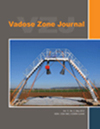投稿信息
稿件收录要求
Vadose Zone Journal (VZJ) is an outlet for interdisciplinary research and assessment of the vadose zone, the mostly unsaturated zone between the soil surface and the permanent groundwater table. The scientific community has an increasing need for effective dissemination of information about the physical, chemical, and biological processes operating in this zone. Currently no scientific journal focuses specifically on the vadose zone, and we trust that VZJ will fill this gap. The journal will provide a forum for vadose zone research and assessment using electronic procedures for manuscript submission, review, and publication. The vadose zone has long been the focus of research and assessment by scientists concerned with soil water flow and the fate and transport of chemicals stemming from agricultural practices or waste disposal operations. This focus has broadened considerably in recent years. Many industrial, municipal, and engineering activities are now also known to have an impact on the vadose zone, and hence indirectly all of the subsurface environment. As a result, many state and federal agencies, such as EPA, DOE, DOD, NASA, and NSF, are increasingly addressing vadose zone issues, including serving as funding agencies for vadose zone investigations. The vadose zone is now the active domain of scientists and professionals in a broad range of disciplines. These disciplines include soil physics, geophysics, hydrogeology, geochemistry, soil chemistry, microbiology, terrestrial ecology, environmental engineering, agricultural engineering, and engineering associated with construction, petroleum, and chemical technologies. Vadose Zone Journal will report fundamental and applied research from disciplinary and multidisciplinary investigations, including assessment and policy analyses of single- and multi-issue concerns involving the vadose zone. Our goal is to disseminate information to facilitate science-based decision making and sustainable management of the vadose zone. Examples of topic areas suitable for VZJ are variably saturated fluid flow, heat and solute transport in granular and fractured media, flow processes in the capillary fringe at or near the water table, water table management, regional and global climate change impacts on the vadose zone, carbon sequestration, design and performance of waste disposal facilities, biogeochemical transformation processes, microbial processes in shallow and deep formations, bioremediation, and the fate and transport of radionuclides, inorganic and organic chemicals, colloids, viruses and microorganisms. VZJ will also address yet-to-be-resolved issues, such as how to quantify heterogeneity of subsurface processes and properties, and how to couple physical, chemical, and biological processes across a range of spatial scales from the molecular to the global.




